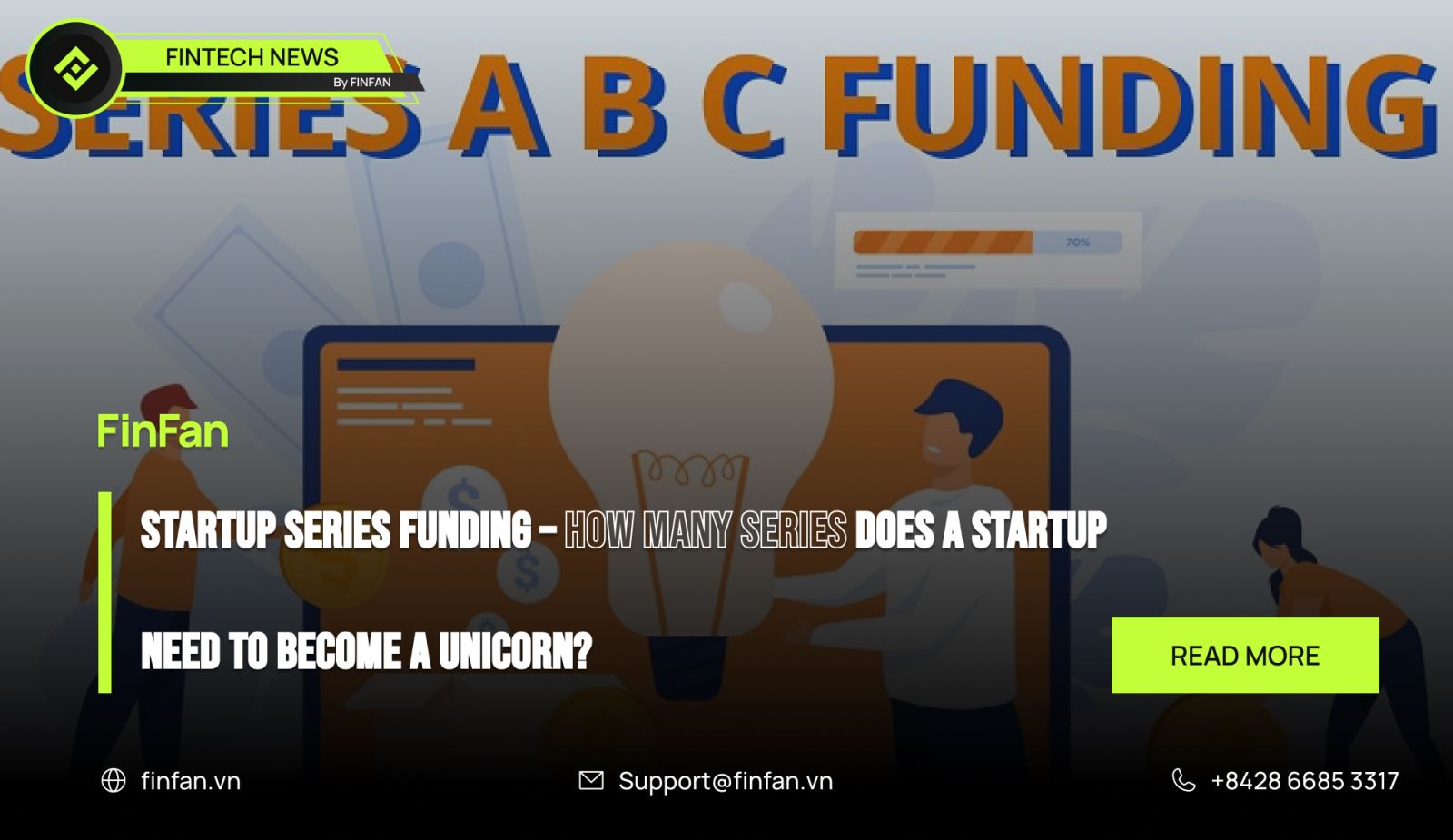Startup series funding – How many series does a startup need to become a unicorn?

In the article Startup seed funding – What are the difficulties for founders after startup seed funding? FinFan discussed the seed round's first funding round and the difficulties entrepreneurs need to overcome to pass the first phase of the startup called survival.
After the seed round, entrepreneurs will run their startups for a period before coming to the next phase of the startup journey called series funding. In this article, we will learn more about what is startup series funding and how many funding series a startup needs on the way to becoming a unicorn.
What is startup series funding?
Startup series funding is the funding round after the startup grows a period after receiving the investment from the seed round. At that time this startup may be in two cases:
- The first case happens when a startup runs out of capital in the budget due to a crisis or the owner's bad management or market share is no longer enough to grow.
- The second case happens when a startup needs more money to continue to grow and capture market share.
In the first case, if investors discover the growth potential of a startup’s business they will discuss and give directions for the business to overcome the crisis together.
If the crisis comes from the owner's bad management, investors will probably recommend alternatives to some leadership positions.
If the crisis comes to the size of the market and the potential to grow, investors will discuss with the owner about the capital recovery process and give honest advice to the business owner about declaring bankruptcy.
In the second case, if the investors see the growth potential of the business in the distant future, they will want to invest more in the company and may be willing to help the owner to call for more investment from other acquaintances.
How many series does a startup need to become a unicorn?
There is no correct answer to this question. Depending on each stage of development, market share and customer reliability, the company will need more or less series. The order of the series will be alphabetical, for example, series A, series B, etc.
For example, MoMo (a partner of FinFan) needs 4 series to be evaluated as a technology unicorn in Vietnam. The first round was a successful round for both investors and MoMo itself when MoMo received $28 million from Goldman Sachs and Standard Chartered Private Equity.
With money injected, they were temporarily assured of their ability to survive for a few more years to perfect the product ecosystem and perfect the customer development model.
Gradually market conditions matured, many large companies, banks, large insurance companies became partners and users of smart handheld devices began to familiarize themselves with the new payment method. The situation turned from 2018 when MoMo was like a horse-drawn carriage moving from trotting to galloping: in 2019 it reached 10 million users, in September 2020 reached 20 million users, in early 2022 it reached 31 million users and attracted 10 million users of financial and insurance services - according to MoMo's announcements.
Most recently, after the most successful series in the 5th series from Japanese bank Mizuho, MoMo has been valued at more than $2 billion.
Another partner of FinFan - Thunes - a Singapore-based startup developing a cross-border payments network to make financial services more accessible in emerging markets, announced in 2020 it had raised a $60 million Series B. The round was led by Africa-focused firm Helios Investment Partners, with participation from Checkout.com and returning investors GGV Capital and Future Shape.
Thunes is also highly regarded in the fintech world. However, to achieve success like MoMo, Thunes needs to have at least 3 more rounds of funding and prove its growth potential within at least 3 more years.